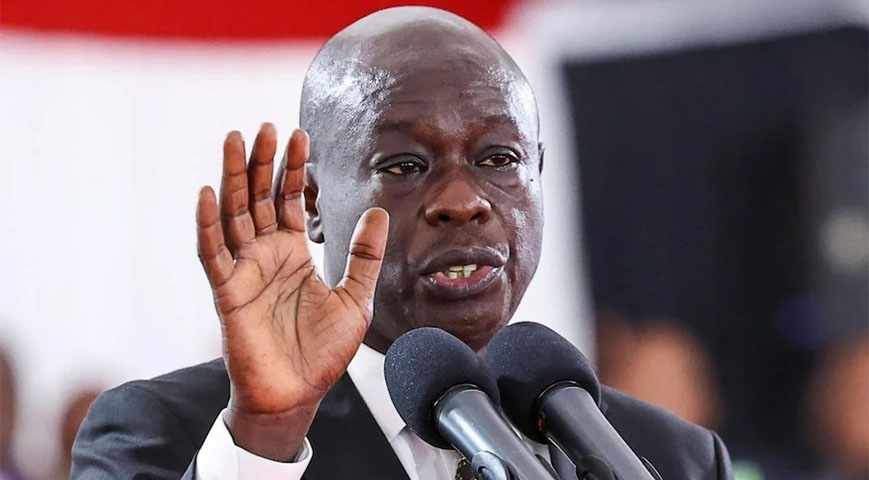The High Court has suspended the senate resolution to uphold the impeachment of former Deputy President Rigathi Gachagua on Thursday, October 17.
In a ruling delivered on Friday, Justice Chacha Mwita cited that Gachagua's petition raised pertinent issues of law and public interest.
Mwita has issued a conservatory order staying the implementation of the impeachment charges, including the appointment of his replacement, until October 24, 2024, when the matter will be mentioned before the court.
The judge now directed the Chief Justice to appoint a bench to hear the petition.
"That due the the significance of issues raised in the petition and application, I certify this matter as raising substantial questions of law and public interest and therefore fit to be heard by a bench of uneven number of judges to be appointed by the Hon. The Chief Justice. The file be placed before the Hon. Chief Justice immediately for consideration in that regard," the ruling read in part.
Did you read this?
Senate Speaker Amason Kingi gazetted the impeachment of Deputy President Rigathi Gachagua, consequently formalizing the removal of the country's second in command from office.
The Gazette Notice, dated October 17, 2024, was released Thursday night immediately after the Senate approved the impeachment motion against Gachagua.
In the notice, the Senate Speaker listed the five grounds on which the Senate voted to send Gachagua home.
The five grounds for Gachagua's impeachment upheld by the Senate include Gross violation of Articles 10 (2) (a), (b) and (c); 27 (4), 73 (1) (a) and (2) (b); 75 (1) (c), and 129 (2) of the Constitution and Article 147 (1), as read together with Article 131 (2) (c) and (d) of the Constitution.
Other grounds are gross violation of Article 160 (1) of the Constitution on the Institutional and Decisional Independence of Judges, gross violation of Articles 3 (1) and 148 (5) (a) of the Constitution on the fidelity to the Oath of Office and Allegiance and serious reasons to believe that H.E., the Deputy President, has committed crimes under sections 13 (1) (a) and 62 of the National Cohesion and Integration Act.
As well as gross misconduct incompatible with the high calling and dignified status of the Office of the Deputy President.









